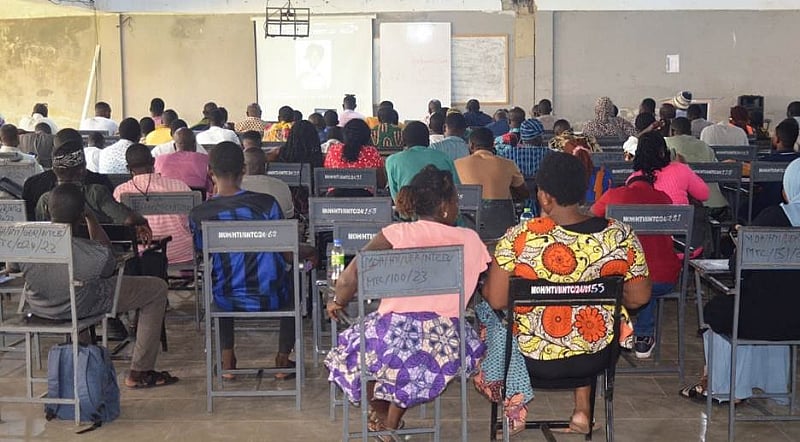Ghana statistical Service is embarking on its most ambitious economic survey to date, the Integrated Business Establishment Survey Phase II (IBES II).
The closing ceremony of the Field Officers’ Training Workshop and official launch of data collection took place on, July 2, 2025, at Zenith University College, Accra. This pivotal exercise aims to gather comprehensive and representative data from approximately 45,000 establishments across the country, carefully selected from 1.86 million businesses nationwide.
The IBES II survey marks the fifth of its kind in Ghana’s history, following previous rounds conducted in 1962, 1987, 2003, and 2014.
Dr. Alhassan Iddrisu, the Government Statistician, emphasized the critical importance of this undertaking during his keynote address, stating that the data collected will directly feed into national planning, including the rebasing of Ghana’s Gross Domestic Product (GDP), Producer Price Index (PPI), and Index of Industrial Production (IIP). He also highlighted its role in understanding production and supporting businesses, both large and small, to thrive in the Ghanaian environment.
The rigorous training program for field officers, which commenced on June 15, saw over 3,000 applicants selected nationwide after interviews at the regional level. In the Greater Accra region alone, 392 trainees were spread across seven classrooms, guided by 43 dedicated facilitators. These participants underwent 21 days of intensive training, covering the IBES II questionnaires and engaging in practical sessions to ensure preparedness for field work. From this highly qualified cohort, approximately 2,600 individuals will proceed to collect data in the field. The final selection of field officers is strictly based on performance in assessments and field practice.
Dr. Anthony Krakah, the National IBES Coordinator, provided an overview of the survey, stressing the deployment of technology for real-time data monitoring to identify outliers and address errors in the field. He also issued a stern warning against data falsification, reminding trainees that it is a criminal offense.
Dr. Johnson Owusu Kegya, Director of Business, Trade & Industry Directorate, delivered reflections and a synopsis of effective field data collection. He underscored the importance of protecting data credibility, safeguarding data security and confidentiality, and adhering to the national timeline for data completion by November 2025. He urged field officers to demonstrate professionalism, integrity, and discipline, emphasizing that “if this I-BEST II must be done, then it must be done well”.

The agenda for the closing ceremony was packed, commencing with participants seated at 01:50, followed by an opening prayer, welcome remarks, and the overview of IBES. The reflections on effective field data collection, the keynote address, and the official launch of data collection followed. The event concluded with a closing prayer, engagement with media, and a break into classrooms.
The Government Statistician reiterated that field officers are the “eyes and ears” of the Ghana Statistical Service and carry the nation’s confidence. Data collection is slated to begin next Thursday, July 10, 2025. The Ghana Statistical Service, with support from partners like the World Bank, is fully committed to the success of this project.
Mr. Bawa Abdul-Kadir, the Upper East Regional Statistician, provided remarks emphasizing the regional significance of the IBES II. He noted that out of the over 150 trainees in the region, approximately 105 will be selected for field work, with the remainder on standby. The survey in the Upper East Region alone will involve visiting about 2,511 businesses. He underscored that the IBES 2025 is vital for measuring the contribution of each sector and region to the national economy. Importantly, the data will also help identify challenges faced by businesses, assess their impact on productivity and competitiveness, and even evaluate environmental degradation resulting from industrial operations. Mr. Abdul-Kadir reassured the business community that field officers have taken an oath of secrecy, compelling them to maintain confidentiality regarding all information provided. He also informed the public that field officers will be easily identifiable through their identity cards, caps, other apparel, and introductory letters from the Ghana Statistical Service.
Feedback from participants highlighted the positive impact of the training. Fuseini Dokurugu, an Acting Center Lead, stated that the “21-week training has been very successful.” He expressed hope that the concepts learned would be applied in the field to bring back quality data to enhance policy making from headquarters. He also mentioned that trainees were taught how to ensure questions are answered correctly and participated in mock interviews. The confidentiality clause was also a key topic emphasized during the training, which should prevent any issues in the field.


